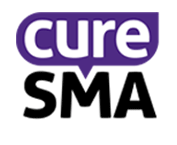Cure SMA Applauds Senate Committee Passage of 7 More Bills Under ‘Innovation and 21st Century Cures’

The U.S. Senate Health, Education, Labor and Pensions (HELP) Committee recently passed an additional seven bills. Cure SMA, a nonprofit  organization funding research into new treatments and a possible cure for spinal muscular atrophy (SMA), and providing SMA families with support, observes that along with seven other bills previously passed out of committee, there are now 14 bills approved by the HELP committee as part of the Senate’s “step-by-step” approach to Innovation and 21st Century Cures.
organization funding research into new treatments and a possible cure for spinal muscular atrophy (SMA), and providing SMA families with support, observes that along with seven other bills previously passed out of committee, there are now 14 bills approved by the HELP committee as part of the Senate’s “step-by-step” approach to Innovation and 21st Century Cures.
The advocacy organization explains that the Senate’s multiple bills approach to moving the Innovation legislation forward complements the comprehensive 21st Century Cures/Innovation legislative package approved last July by the U.S. House of Representatives. The various provisions of the 21st Century Cures act will be considered in the Senate as separate bills, with votes spread over February, March, and April. Bills approved in committee will then move on to the full Senate to be voted on.
 CureSMA notes that among the bills passed March 10 is the Patient-Focused Impact Assessment Act of 2015 (S. 1597), which is sponsored by Sen. Roger Wicker, R-Miss., along with Sens. Amy Klobuchar, D-Minn.; Susan Collins, R-Maine; John Isakson, R-Ga.; and Michael Bennet, D-Colo. The legislation aims to enhance the FDA’s engagement with patients using patient-focused drug development tools in the development and review stages of medical product applications.
CureSMA notes that among the bills passed March 10 is the Patient-Focused Impact Assessment Act of 2015 (S. 1597), which is sponsored by Sen. Roger Wicker, R-Miss., along with Sens. Amy Klobuchar, D-Minn.; Susan Collins, R-Maine; John Isakson, R-Ga.; and Michael Bennet, D-Colo. The legislation aims to enhance the FDA’s engagement with patients using patient-focused drug development tools in the development and review stages of medical product applications.
“We continue to applaud the Senate committee’s progress on this legislation and are looking ahead to the final committee meeting on April 6,” CureSMA stated in a release. “In the meantime, our community must work to keep this momentum in the Senate going.”
Congress describes the 21st Century Cures act, which has bipartisan support, as an initiative to bring America’s healthcare innovation infrastructure into the 21st century. The act provides new hope for patients and their loved ones and the necessary resources for researchers to continue their efforts to find the next generation of treatments and cures, as well as speed the advance of healthcare innovation.
In a statement, the legislators said that, from the mapping of the human genome to the rise of personalized therapies linked to advances in molecular medicine, this age has witnessed consistent breakthroughs that are changing the face of disease treatment, management, and cures.
Still, while research is moving quickly, lawmakers acknowledge that the federal system of drug and device approval isn’t keeping pace, and is in many ways a relic of another era. It is slow and holds back scientists and leaders at agencies like the National Institutes of Health (NIH) and the Food and Drug Administration (FDA) with antiquated laws and rules. They note that although some 10,000 diseases or health disorders are known, cures and treatments exist for only 500 of them — an unacceptable number.
For example, a House document observes that despite recent science and technology advancements, designing and conducting clinical trials for new drugs and devices in the U.S. has become increasingly complex, time consuming, and expensive, and through consultations on the 21st Century Cures initiative, House members heard loud and clear that in order to get life-saving drugs and devices to patients faster, the clinical trial process must be modernized.
SMA, which can affect any race and either gender, is caused by a mutation in the survival motor neuron gene 1 (SMN1) and robs people of physical strength by affecting the motor nerve cells in the spinal cord, gradually taking away the ability to walk and, eventually, to eat or breathe. SMA affects approximately 1 in 10,000 babies, and is the No. 1 genetic cause of death for infants, with about 1 in every 50 Americans a genetic carrier.
In a healthy person, the SMN1 gene produces a protein that is critical to the functioning of nerves that control muscles. Without it, those nerve cells cannot properly function and eventually die, leading to debilitating muscle weakness.
Cure SMA explains that Congress’s 21st Century Cures bill contains key provisions that could have a positive impact on SMA patients and families, including requirements for patient input into risk/benefit analysis, changes to FDA evaluation processes, and $10 billion in mandatory additional funding for the NIH.
CureSMA is appealing for individual supporters to help in contacting their senators and informing them about the importance of this legislation for the discovery of SMA cures and treatments and urging them to ensure that these bills continue to advance. The advocacy group has posted a sample introduction and some talking points to use:
“My name is _____________ and I live in town/city/state.
I am calling to ask that Senator LAST NAME support bringing Innovation bills, including S. 849 and S. 1597, to the Senate Floor for a vote as soon as possible.“I care about this legislation because I/my child/family member [NAME] have/has spinal muscular atrophy, or SMA. This is a neurological disease that robs people of physical strength by affecting the motor nerve cells in the spinal cord, taking away the ability to walk, eat, or breathe. It is the number one genetic cause of death for infants.
“S. 849 would expand and enhance federal research on neurological diseases and would facilitate the collection and tracking of information on neurological diseases for use by federal agencies and the public, including researchers.
“S. 1597 would enhance FDA’s patient engagement processes to more effectively incorporate the patients’ perspectives and experiences into the development and review of new drugs.
“As a constituent, it is very important to me that the Senate move this legislation forward.”
Cure SMA also notes that Americans can reach out to their senators through Twitter by either asking the senator’s office for his or her Twitter handle, or finding it by using Twitter’s search function.
Those wanting to pitch in can find contact information for their senator at:
https://www.senate.gov/senators/contact/







